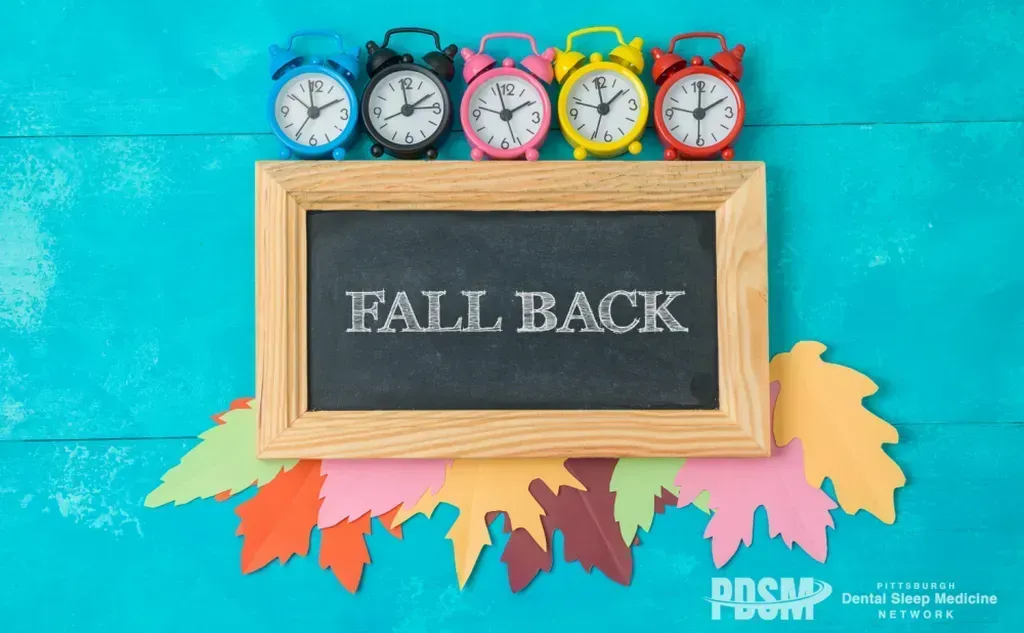Daylight Savings Comes to an End and Sleep Disruption Starts Again!

Daylight Saving Time always begins on the second Sunday in March and officially ends each year at 2:00 A.M. on the first Sunday in November. So we lose an hour of sleep in the spring when we set the clocks ahead, and gain an hour of sleep in the fall when we set the clocks back one hour.
The purpose of advancing clocks ahead during warmer months is so that darkness falls later each day according to the clock. Only about 40% of the countries worldwide use it to make better use of daylight and to conserve energy.
Most people complain about losing an hour of sleep in the Spring but get excited at the idea of gaining an hour back in the Fall. But there's a catch!
Whether we lose or gain an hour, we are throwing our biological clock (circadian rythym) into a little bit of a frenzy. When we alter our sleep-awake schedules by even one hour, our bodies need time to adjust. So, while you think you get an extra hour of sleep, your internal clock is going to be screaming "HEY, IT'S TIME TO GET UP!"
Research done by Dr. Beth Ann Malow, professor of Neurology and Pediatrics in the Sleep Disorders Division at Vanderbilt University Medical Center, says, “It’s not one hour twice a year. It’s a misalignment of our biological clocks for eight months of the year. When we talk about DST and its relationship to light, we are talking about profound impacts on the biological clock, which is a structure rooted in the brain. It impacts brain functions such as energy levels and alertness.”
In fact, many researchers throughout the world have tried to show that losing or gaining an hour of sleep because of Daylight Saving Time can actually negatively affect your health.
Michigan researchers reported in the American Journal of cardiology that a small increase in heart attacks on the first day (Sunday) of the spring transition to Daylight Saving Time when we “lose” an hour of sleep. This echoed a Swedish study published in the New England Journal of Medicine showing a small increase in heart attacks after the start of Daylight Saving Time and a small decrease at its end.
What are some other suggested consequences?
- Increased motor vehicle accidents
- Workplace accidents and decreased performance
- Mood alterations including loss of focus, irritability, depression, and fatigue
- Greater rates of stroke and heart attack
- Change in appetite
SIMILARLY, Obstructive Sleep Apnea (OSA) is a potentially serious sleep disorder in which can negatively affect your overall health. With sleep apnea, your breathing repeatedly stops and starts, which forces you to wake up to resume breathing. These multiple sleep interruptions prevent you from sleeping well, leaving you feeling extra tired during the day.
Left untreated, sleep apnea can have serious and life-shortening consequences: high blood pressure, heart disease, stroke, automobile accidents caused by falling asleep at the wheel, diabetes, depression, and other ailments.
So how do you combat the negative effects of the DREADED Daylight Savings Time dilemma?? The American Academy of Sleep Medicine recommends the following practices to minimize the adverse effects of daylight saving time:
- Go to bed 15 or 20 minutes earlier or later each night before the time change. This will give your body time to adjust.
- Begin to adjust the timing of other daily routines that are “time cues” for your body (e.g., start eating dinner a little earlier or later each night).
- On Saturday night, set your clocks ahead or behind one hour in the early evening. Then go to sleep at your normal bedtime.
- Head outdoors for some early morning sunlight on Sunday. The bright light will help set your internal clock, which regulates sleep and alertness.
- Stick to your usual bedtime on Sunday night to get plenty of sleep before the workweek begins on Monday.
At Pittsburgh Dental Sleep Medicine, we can't do anything to change the fact that Daylight Savings Times occur, however, our experienced Sleep Dentists are specially trained to help find a solution for your sleep apnea and chronic snoring.
Contact us today to learn if you are a candidate for oral appliance therapy. We have four convenient locations in Wexford, McMurray, Latrobe, and Monroeville Pennsylvania. Treatment is covered by most medical insurance plans.
Content Sources:
https://aasm.org/american-academy-of-sleep-medicine-advisory-warns-of-adverse-effects-of-daylight-saving-time/
https://www.webmd.com/sleep-disorders/features/coping-with-time-changes
https://www.health.harvard.edu/blog/daylight-saving-time-fall-back-doesnt-equal-sleep-gain-201311016836#:~:text=In%20the%20Fall%2C%20only%20a,wake%20up%20during%20the%20night.

